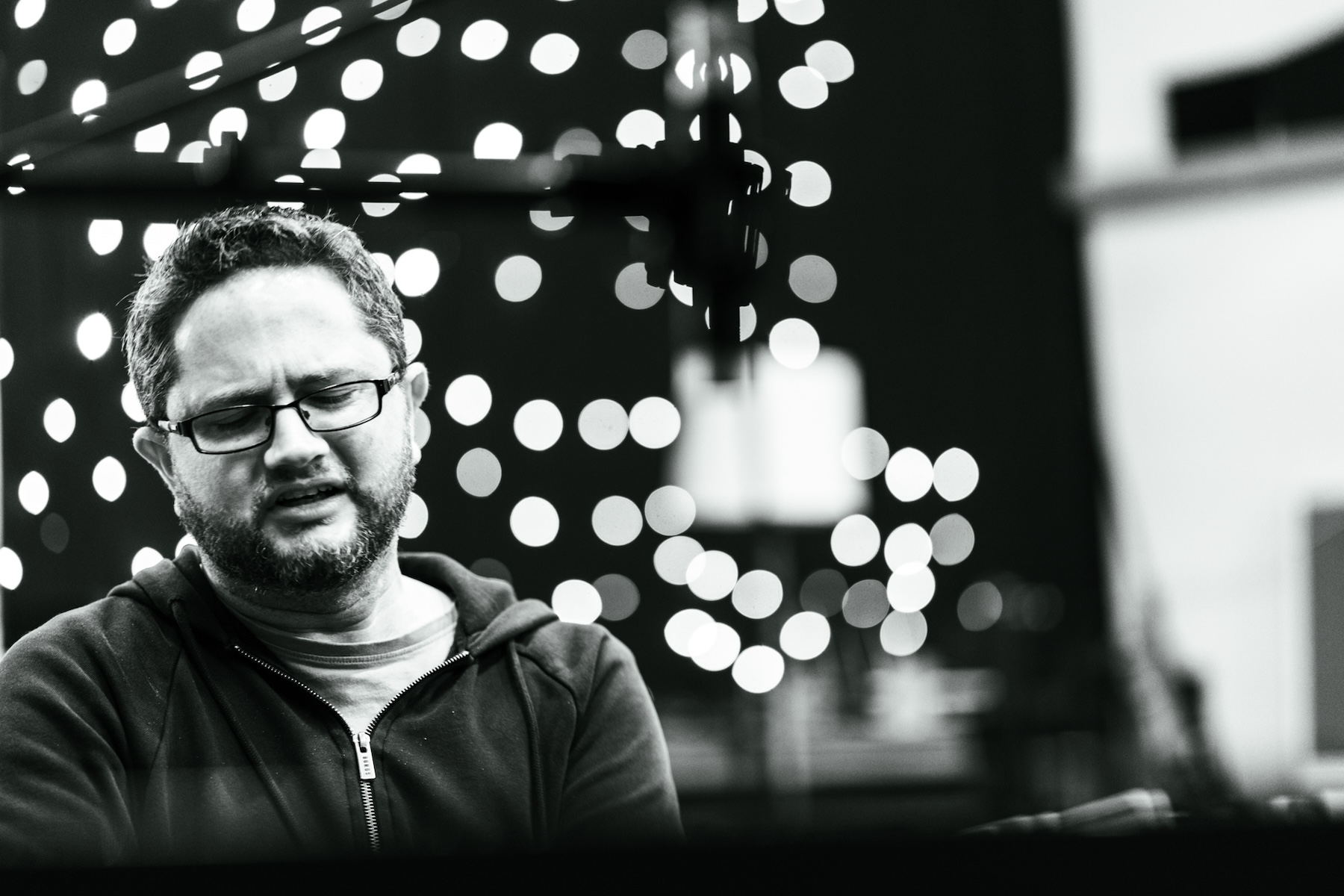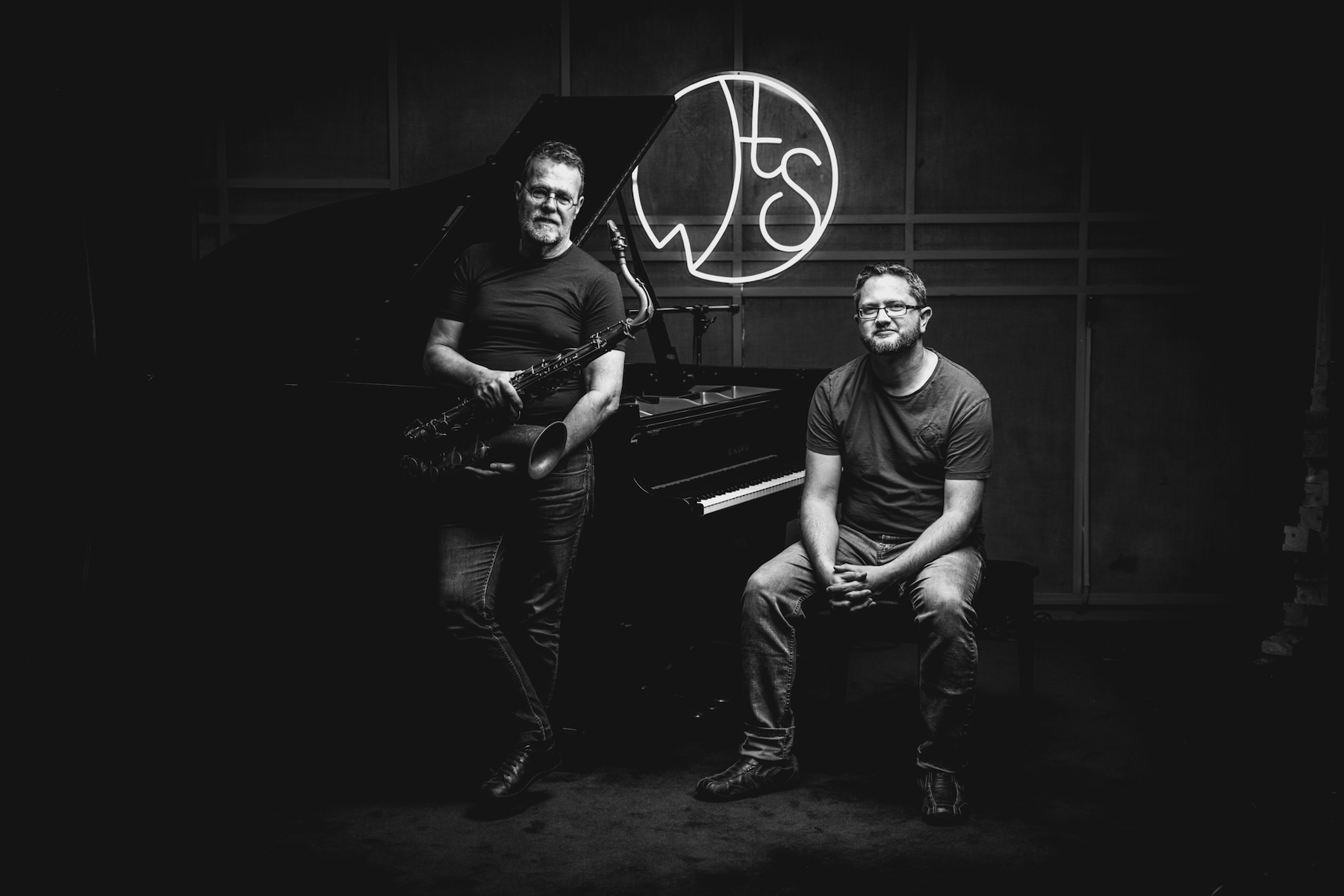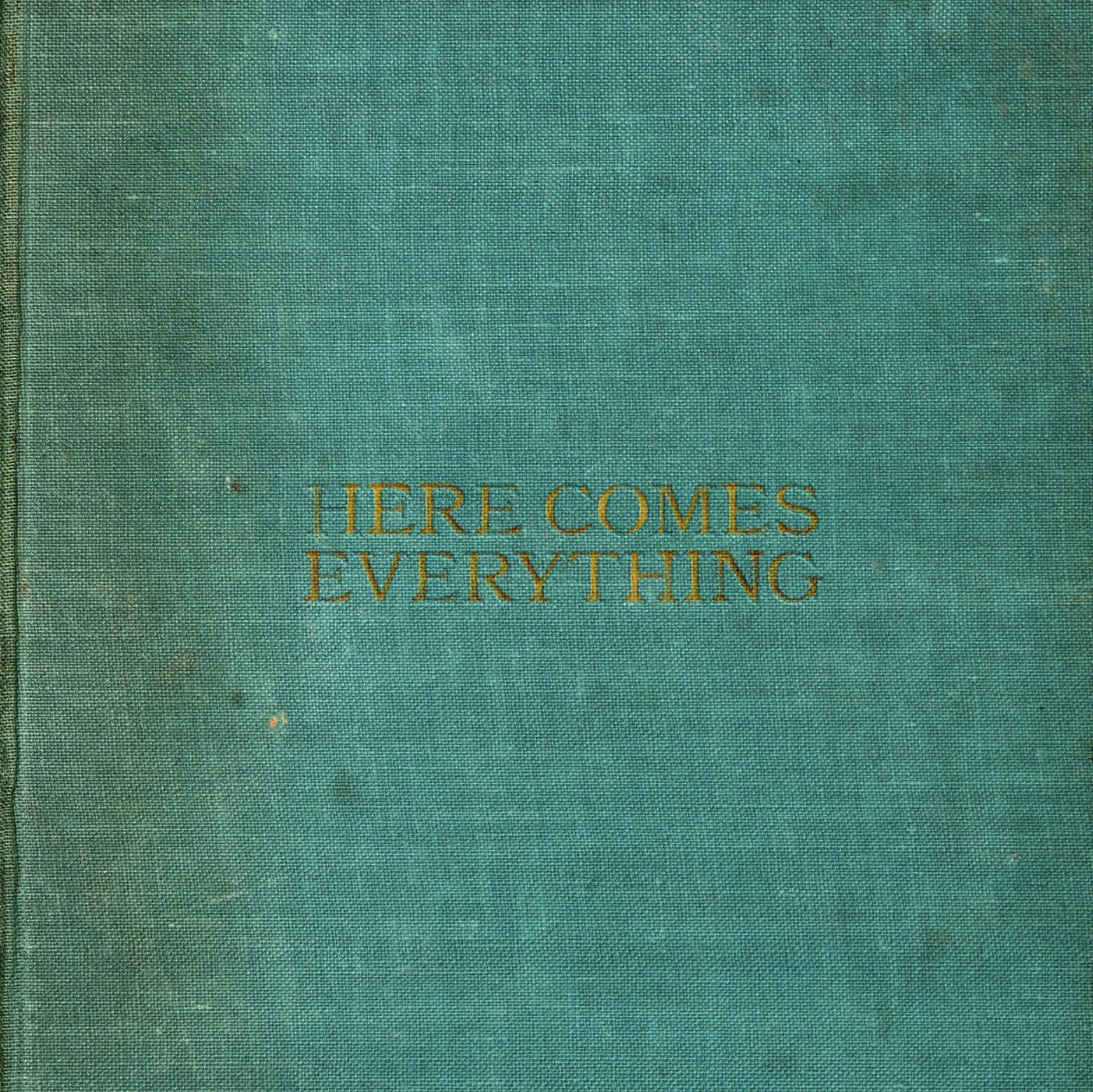Adelaide duo turn James Joyce’s Ulysses into 18-hour jazz odyssey
It’s unusual for a debut release to consist of 18 discs of improvised sax-and-piano jazz inspired by a 105-year-old novel. For Derek Pascoe and Chris Martin, Here Comes Everything is a fitting rebuke to the Spotify era.

Derek Pascoe appreciates the life-changing power of spontaneity.
“Me being in Australia, I literally can put it back to a moment when I turned left or turned right in Brixton,” he tells InReview.
Back in the 1970s, Pascoe and some school friends had found chart success and TV fame in the English pop group Flintlock, where the young saxophonist could be regularly seen on Top of the Pops — until he decided to “try and become a ‘proper musician’”.
“I decided that if, if I didn’t walk away from this, I was going to be doing pantomime,” he says. “But if I hadn’t been in that band, I don’t think my dad would have let me be a musician.”
He made that right turn in Brixton a few years later, into a fancy restaurant where the then-34-year-old landed a gig playing jazz to high-end diners. Within a few weeks, a young woman from Adelaide named Kirsten Coelho also walked in looking for a job.
That was 1991, and by the end of the year Pascoe and Coelho – now a celebrated ceramicist – were married. Four decades later, Pascoe was in his mid-60s teaching at the Elder Conservatorium of Music in his wife’s hometown, where he found himself contemplating his musical past and future as he tried to prepare young, aspiring musicians for landscape unrecognisable from the one he grew up with.
“They go to classes where they talk about a life in music, which is, how to make a living out of music,” he reflects.

Today, Pascoe says, young musicians are often encouraged to front-load their songwriting to give them the best chance of making it in an era of streaming algorithms and attention economies.
You might like
“If nothing happens in the first 10, 15 seconds, it’s not going to do well because people just go on to the next thing. You’ve got to make something happen right then, you know? It’s a terrible thought.”
Pascoe did the most obvious thing: he turned to Irish novelist James Joyce’s famously impenetrable tome, Ulysses.
“I first read Ulysses when I was about 20,” he says. “Didn’t really understand a word of it, but I did realise that this was an amazing book.”
Egged on by composer and producer Luke Altmann, Pascoe began to hatch a plan: he would attempt a long-form project to capture as much of his own playing as possible – a lifetime of experience distilled into one marathon recording – alongside pianist Chris Martin, Pascoe’s longtime collaborator and not the guy from Coldplay.

Using Joyce’s ambling account of a day in Dublin as a spiritual template, the pair regularly convened at Wizard Tone Studios in Hendon to capture an open-ended “aural diary” of a musical relationship that began in 2000, when Pascoe and Martin were both students at the Elder Conservatorium.
Pascoe’s commitment to the bit included keeping Martin in the dark about his literary inspirations.
“I didn’t even tell Chris that this was the idea — because I didn’t want to say, ‘Hey, let’s do 18 hours of music’. We just sort of took it one fortnight at a time; we did one recording, and then we had a cup of tea and a sandwich, and then we did another.”
"We found out through that long relationship that when we did talk about music, it sort of diluted it … once we started to talk about music, we actually had all this baggage of our education."
For Pascoe, there were unexpected parallels between Joyce’s 700+ page epic and the pair’s wordless, unstructured rapport honed over decades of live performance.
“We never talk about music, ever,” Pascoe says. “We found out through that long relationship that when we did talk about music, it sort of diluted it … once we started to talk about music, we actually had all this baggage of our education. It was pure.
“One of the great things about Ulysses is the stream of consciousness,” he said.
Subscribe for updates
“I could blow raspberries and he could make music, and sometimes I did so,” Pascoe says. “So I just allowed him; if Chris wanted to turn left, then I went away with him.”
It was only once the sessions were tracked that Pascoe sat with all 18 recordings, jotting down thousands of words’ worth of notes on their individual arc and mood to retrofit each performance to one of the book’s 18 chapters, from the 42-minute ‘Telemachus’ to the 54-minute closer ‘Penelope’.
The resulting album, Here Comes Everything, was released by Altmann’s label De La Catessen Records in July. Housed in a turquoise box set of 18 compact discs, the record is an intimate odyssey that, by design, is all over the place – from gentle to thunderous, frantic and discordant to death rattle-quiet.
“The piano takes the helm — dark brooding all the time, dark brooding,” reads one of Pascoe’s notes.

“Stagnant for 27 minutes; it’s like a mill pond; jangling piano; a sense of tintinnabulation; all these tiny bells,” reads another.
“Then I’m talking about knocking on the piano,” Pascoe says, “which is basically like someone who’s been buried alive, knocking on the coffin. So I suggested this could be a contender for the ‘Hades’ chapter.”
This isn’t the first local project to defy industry trends and modern attention spans – the Shaolin Afronauts’ released their five-part The Fundamental Nature of Being in 2022, shortly before Pascoe and Martin embarked on their own epic.
“Where’s the space for experimentation in that place when you’re trying to create these market-driven micro-offerings?” Shaolin Afronauts leader Ross McHenry told CityMag at the time. “Who cares what’s commercially successful or viable or whatever?”
Pascoe also appeared on The Fundamental Nature of Being, and has landed on a similar sentiment.
“I didn’t really realise this until recently, after I’d done it,” he reflects, “that this was my way of pushing back against the Spotifies of the world. You know, wouldn’t it be great to do 18 hours of music? You know, that would be completely useless in that platform.
“So that was it, really.”
Here Comes Everything is out now via De La Catessen Records
Free to share
This article may be shared online or in print under a Creative Commons licence

